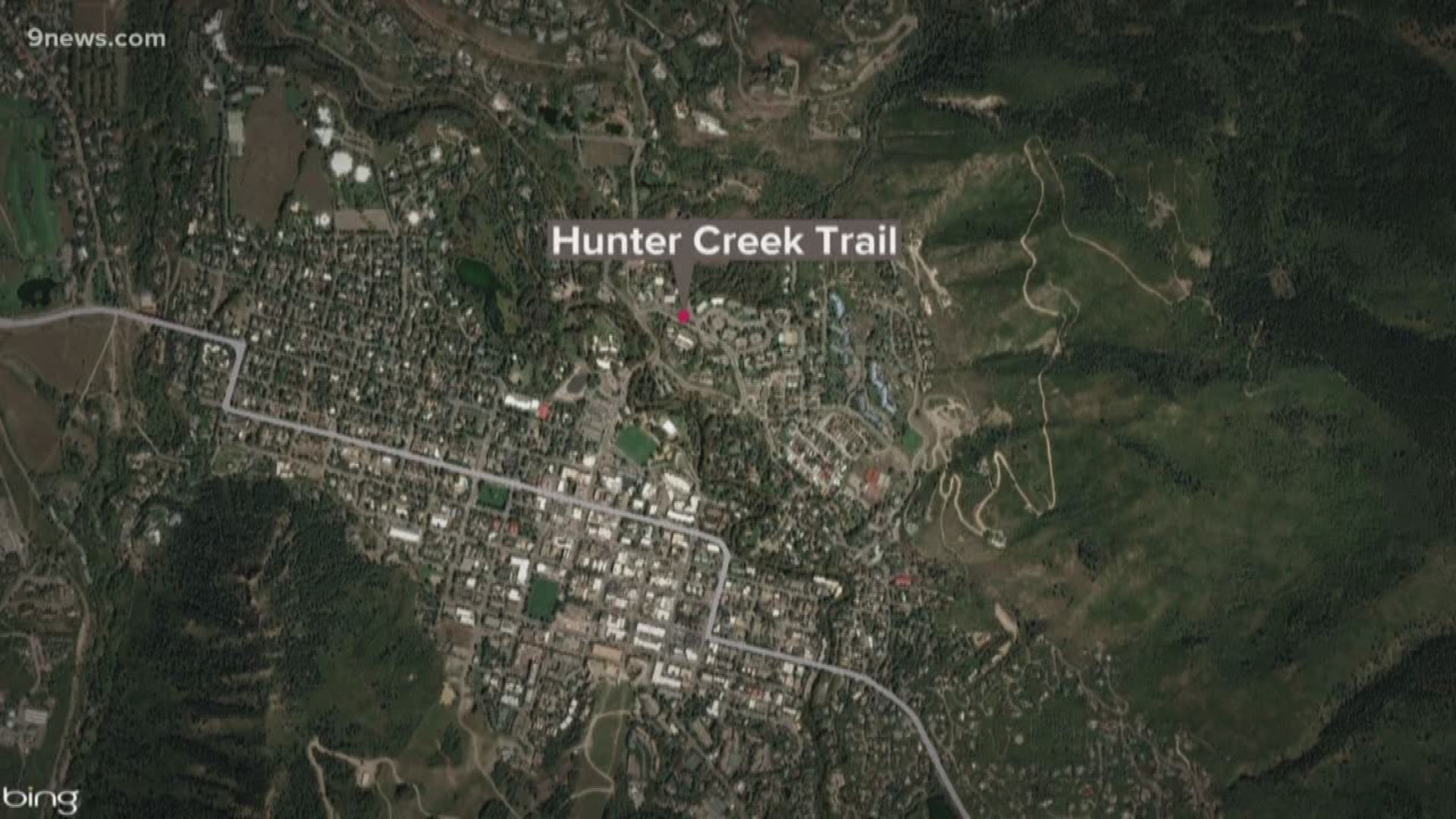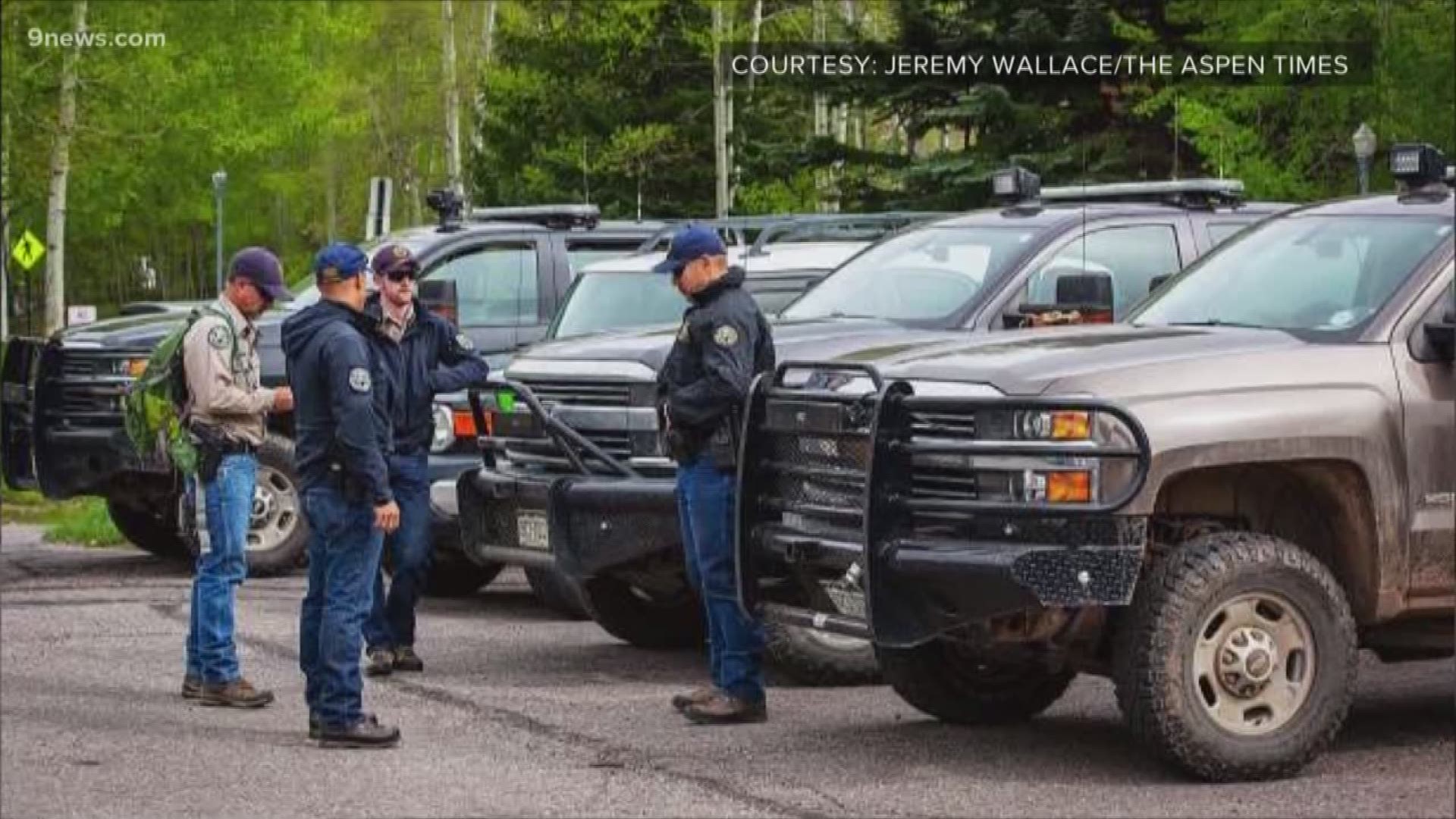ASPEN, Colo. — A DNA test has confirmed that the bear killed by Colorado Parks and Wildlife (CPW) officers is the same animal that attacked a woman hiking near Aspen last month.
The woman told CPW that she and her husband were hiking on the Hunter Creek Trail near Lone Pine Road in Aspen around 9:15 a.m. on Thursday, May 27 when they saw a bear coming toward them on the trail.
The woman told CPW she stepped off the trail to allow the bear space to pass.
RELATED | Bear bites hiker near Aspen
She said that as the bear passed, it "suddenly turned, charged and bit her," CPW said. The bear then ran off and disappeared.
The bear was tracked and killed by wildlife officers several days later. According to the Wyoming Game & Fish Wildlife Forensics & Fish Health Laboratory, the bear's DNA matched the sample recovered from the wounds of the victim.
In addition, preliminary results from a necropsy performed on the bear at CPW's Wildlife Health Laboratory in Fort Collins revealed the stomach contents of the 3 to 4-year-old, 224-pound male bear consisted almost entirely of birdseed.
"The frustrating thing about this course of events is that it was entirely preventable," said CPW Officer Matt Yamashita, acting area wildlife manager. "CPW officers and other local law enforcement constantly remind the public to secure trash cans and dumpsters, take down bird feeders and lock their first-floor windows."
"Yet calls come in daily reporting aggressive bears demonstrating no fear of humans, getting into dumpsters and residing in people’s yards. Almost nightly bears are reported in houses or vehicles. This should not be considered normal or tolerable. It's time for the public to self-assess and realize that until they take this seriously, people will remain in danger and bears will continue to be put down."
Several times each year through public outreach efforts, CPW cautions the public to remove all food attractants from around their homes to prevent attracting and conditioning bears that become reliant on human-provided food sources.
Bears conditioned and rewarded by human food sources lose their instinctual fear of people and can become very dangerous to the public, CPW said.
SUGGESTED VIDEOS | Local stories from 9NEWS



